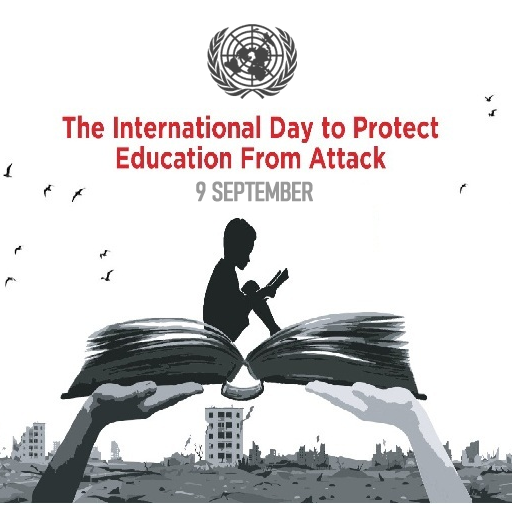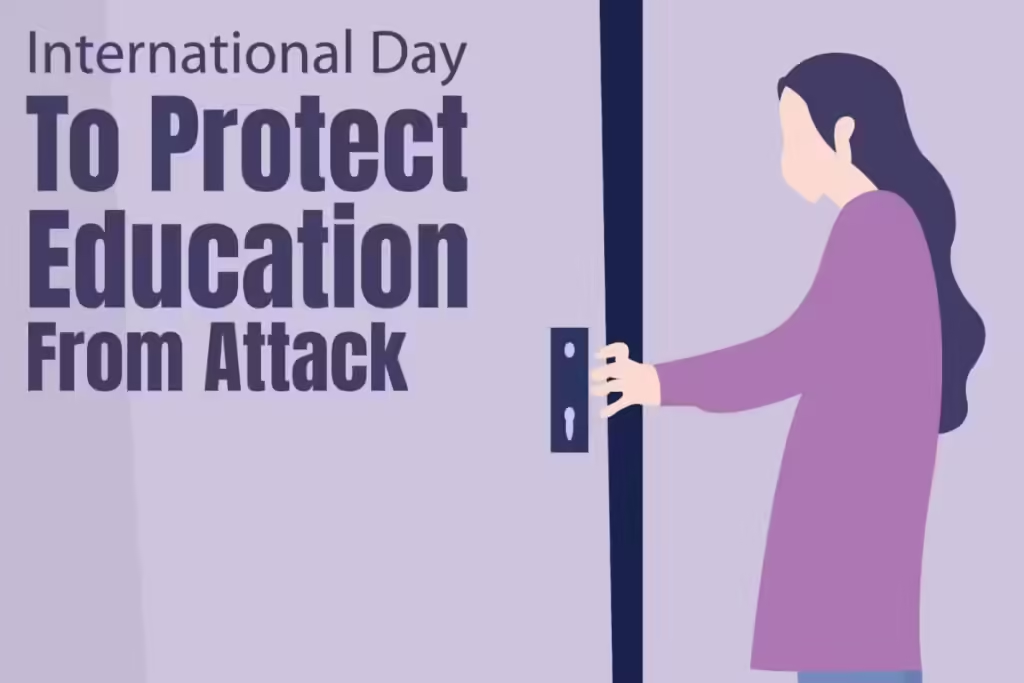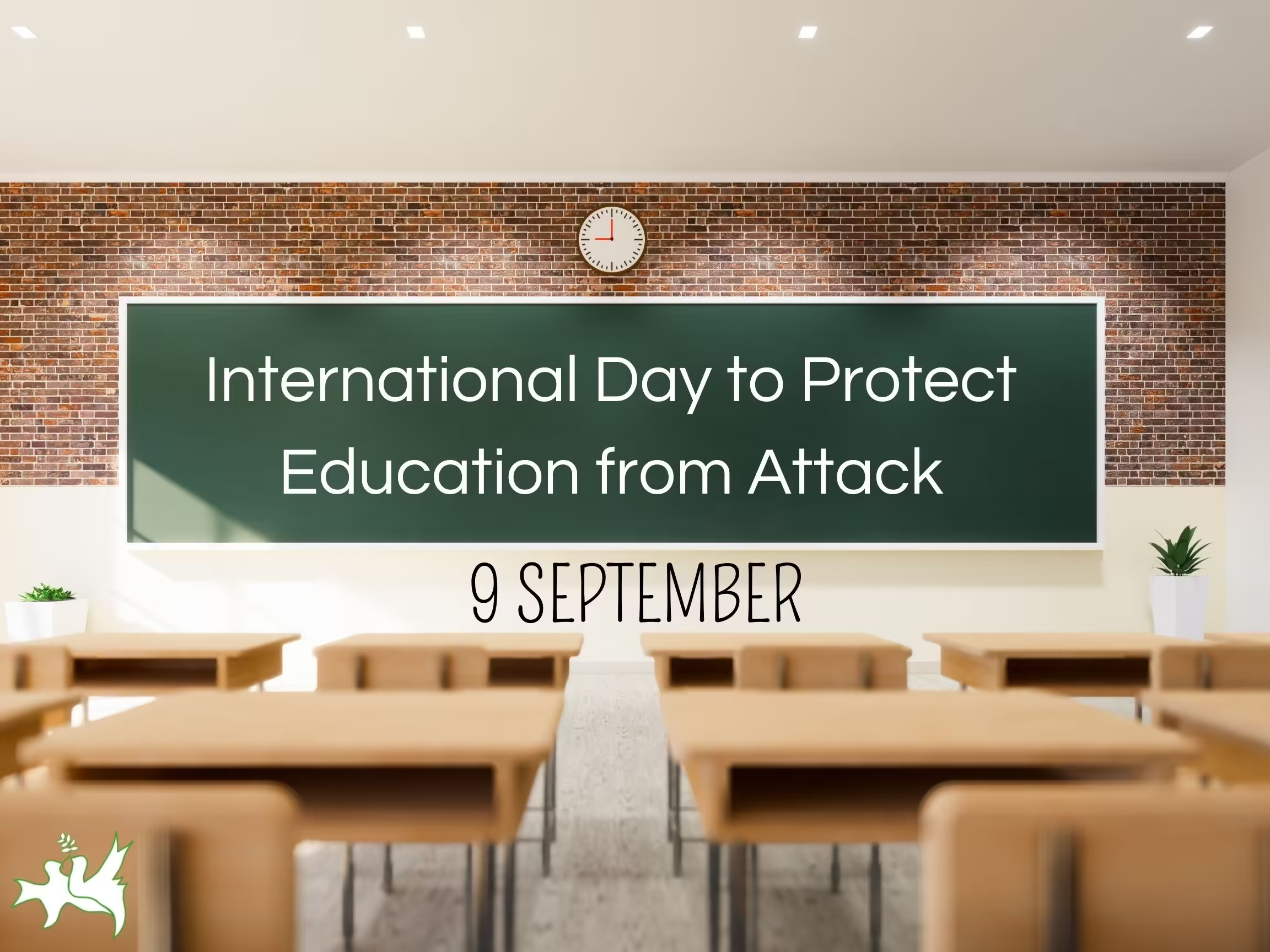Table of Contents
International Day to Protect Education 2024, observed annually on September 9th, is a crucial event in the global calendar dedicated to raising awareness about the threats facing educational institutions in conflict zones.
The concept of protecting education from attack has its roots in the broader human rights movement. Historically, educational institutions have often been targeted during conflicts, with schools and universities becoming battlegrounds or being deliberately destroyed.

Objectives of the International Day
To push for stronger international laws and policies that protect educational institutions and to ensure that governments and armed groups respect these protections.
To encourage the implementation of measures that can make schools safer and more resilient during conflicts, such as creating secure learning spaces and providing psychological support.
To inform global audiences about the risks and realities faced by educational institutions in conflict zones. This includes understanding the physical dangers and the psychological impact on students and educators.
Global Challenges and Developments
In recent years, the global landscape has seen a troubling increase in attacks on educational institutions. Conflicts in countries such as Afghanistan, Yemen, and Ukraine have illustrated the vulnerability of schools and universities. The destruction of educational infrastructure not only disrupts current learning but also impedes long-term development and recovery.
In some conflict-affected areas, communities have taken proactive steps to protect their schools. This includes organizing local security measures, creating emergency response plans, and establishing safe spaces for learning.
Organizations such as UNICEF and UNESCO have implemented programs to support education in emergencies. These programs often provide temporary learning spaces, psychological support, and resources to affected schools.
In some conflict-affected areas, communities have taken proactive steps to protect their schools. This includes organizing local security measures, creating emergency response plans, and establishing safe spaces for learning.

Recent Developments and International Response
This political commitment, endorsed by over 120 countries, aims to protect students, teachers, and schools during armed conflicts. The declaration encourages governments to implement measures that protect education from attack and the military use of schools.
Various non-governmental organizations (NGOs) and advocacy groups have launched campaigns to raise awareness about the issue. These initiatives often focus on providing direct support to affected communities and lobbying for stronger protections.
The UN Security Council has adopted resolutions addressing the protection of education during conflicts, such as Resolution 1998 (2011) and Resolution 2601 (2021), which emphasize the importance of safeguarding educational facilities and personnel.
Attacks on education are often part of a broader strategy to undermine societal structures and morale. In conflict zones, schools are sometimes used as military bases or are deliberately targeted to destabilize communities. The impact of such attacks is profound:
Students and teachers who experience or witness attacks may suffer from severe psychological trauma, which can affect their mental health and academic performance.
The destruction of educational infrastructure hampers community recovery and development efforts, making it harder for societies to rebuild and progress post-conflict.
Attacks can lead to the closure of schools, interrupting the education of children and youth. Prolonged closures can result in lost educational opportunities and diminished future prospects for affected students.

Call to Action
Increased support for communities affected by attacks on education is vital. This includes providing financial aid, psychological support, and resources to rebuild and maintain educational infrastructure.
Governments and international bodies must continue to develop and enforce legal frameworks that protect educational institutions from attacks. This includes ensuring compliance with existing agreements and promoting the adoption of new protections.
Collaboration between governments, international organizations, NGOs, and local communities is essential for effective protection of education. Sharing best practices, resources, and expertise can enhance collective efforts to safeguard educational institutions.
The International Day to Protect Education from Attack 2024 serves as a poignant reminder of the importance of protecting educational institutions in conflict zones.
- why Taliban say I love Hindustan - September 19, 2024
- International Day of Peace 2024 - September 18, 2024
- International Equal Pay Day 2024 - September 17, 2024
